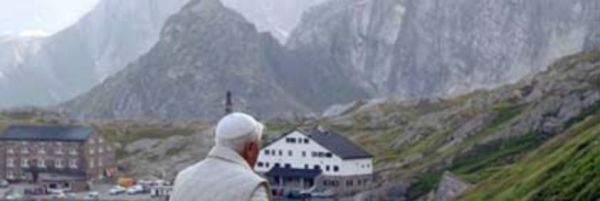The Parable of the Prodigal Son is one of the best-loved passages of Sacred Scripture. Its profound description of God's mercy and the important human desire for conversion and reconciliation, as well as the mending of a broken relationship, speak to men and women of every epoch. Man is frequently tempted to exercise his freedom by distancing himself from God. The experience of the Prodigal Son enables us to note, both in history and in our own lives, that when freedom is sought outside God the result is negative: a loss of personal dignity, moral confusion and social disintegration. The Father's passionate love for humanity, however, triumphs over human pride. Freely given, it is a love that forgives and leads people to enter ever more deeply into the communion of the Church of Christ. He truly offers to all peoples unity in God, and, just as this is perfectly demonstrated by Christ on the Cross, reconciles justice and love (cf. Deus Caritas Est, n. 10).
And what of the elder brother? Is he not, in a certain sense, all men and women as well; perhaps particularly those who sadly distance themselves from the Church? His rationalization of his attitude and actions evokes a certain sympathy, yet in the final analysis illustrates his inability to understand unconditional love. Unable to think beyond the limits of natural justice, he remains trapped within envy and pride, detached from God, isolated from others and ill at ease with himself.
Dear Brothers, as you reflect upon the three characters in this parable - the Father in his abundant mercy, the younger son in his joy at being forgiven, and the elder brother in his tragic isolation - be confirmed in your desire to address the loss of a sense of sin, to which you have referred in your reports. This pastoral priority reflects an eager hope that the faithful will experience God’s boundless love as a call to deepen their ecclesial unity and overcome the division and fragmentation that so often wound today’s families and communities. From this perspective, the Bishop’s responsibility to indicate the destructive presence of sin is readily understood as a service of hope: it strengthens believers to avoid evil and to embrace the perfection of love and the plenitude of Christian life.
[Pope Benedict, Address to the Bishops of Canada 9 October 2006]












